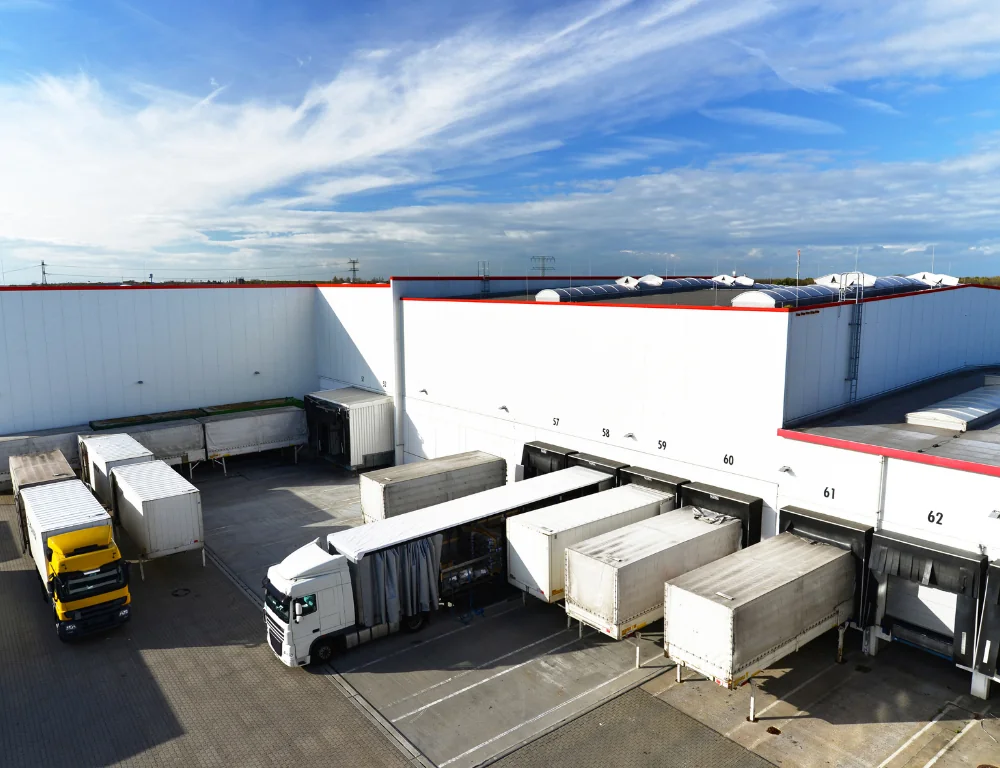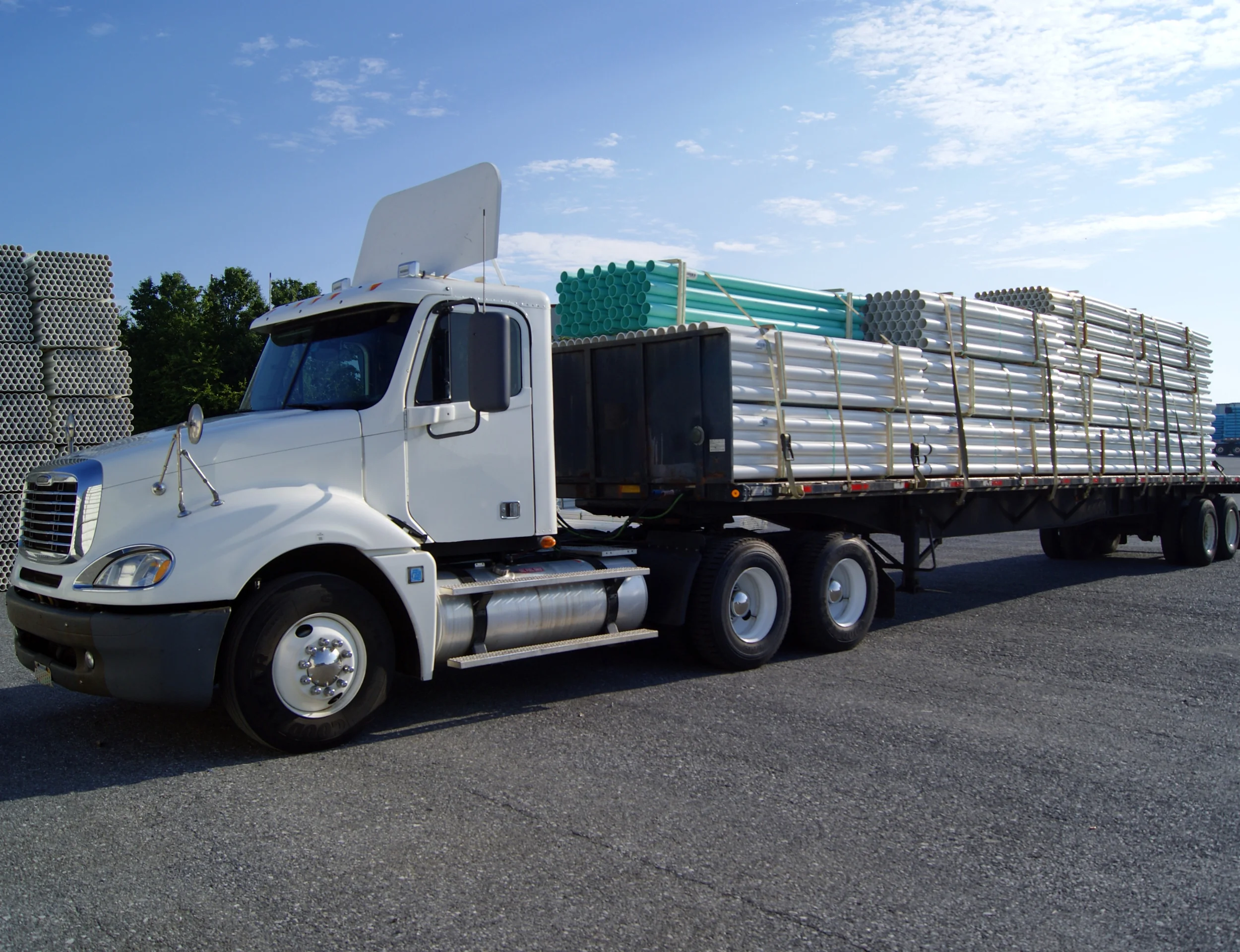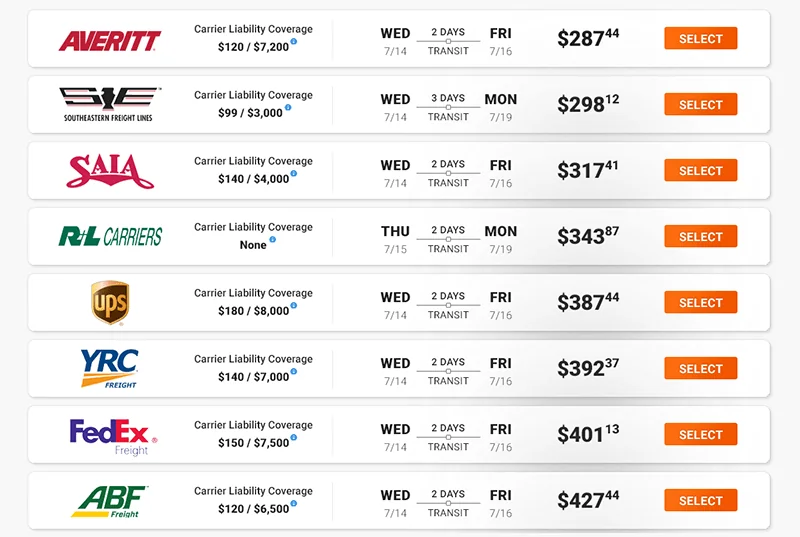
Load Board vs. Freight Marketplace
When a business or individual decides to ship a full truckload, they must figure out how they will have it shipped. Some, like small businesses, don’t automatically have a shipping department or a fleet to make deliveries. They must rely on outside carriers and drivers to deliver their freight to retailers or customers.
But for a first-time shipper or carrier, where do you go to find and post these loads? There are two ways to hire carriers for a full truckload: load boards and freight marketplaces. Both digital platforms are designed as online auction houses but for freight.
Although they function the same, load boards and freight marketplaces are distinct from one another. What are the differences, and what should you choose as a first-time shipper or carrier?
What is a Load Board?
A load board is a virtual marketplace for shippers, brokers, carriers, and drivers to post and view available freight loads. Some have compared load boards to an online dating service; they are great places for brokers and carriers to find one another and connect.
Shippers and brokers add loads onto a load board, and carriers and individual drivers can search and bid on those loads. Once the poster chooses a bidder, they can connect to complete documentation, paperwork, and final payment before the carrier transports the load.
When searching for a load, carriers can filter through the search results using the following criteria:
- Cargo Types
- What the route is
- Location radius
- What equipment is needed for the delivery
- How far you’re willing to travel
- Rates
Most boards are purely for posting and bidding on loads, but some have additional features, like load tracking and credit reports, for brokers and carriers to use when making connections for the first time. These kinds of features are usually found on boards with a subscription fee. However, there are free load boards that first-time carriers can use to test the waters.
What is a Freight Marketplace?
Freight marketplaces are digital platforms containing online marketplaces. Shippers, brokers, and manufacturers can connect with shippers and carriers while finding the best load rates.
Just like with a load board, shippers provide detailed information about the cargo, which carriers can then use to filter and search through loads. However, carriers are vetted by a freight marketplace, so shippers know that the ones bidding on a load are professionals with stellar load records. Carriers can also compare different offers in real-time, making it easy to alter bids.
Freight marketplaces also offer additional services, such as:
- Shipment tracking
- Fleet management systems
- Document management systems
- Automated reporting tools for e-commerce metrics
- Customs clearances for international shipping
Once a bid is made, the shipper and carrier complete the transaction on the platform, including documenting, paperwork, payments, and tracking. However, this comes at a price; most freight marketplaces are subscription-based and expensive (although you can try some of a marketplace’s features out for free before subscribing).

Comparison Time!
Both types of load posting platforms can seem very similar to one another. Both are digital places where people shipping a heavy or full truckload can post their loads for carriers to view and bid on. They are also designed to be user-friendly and adaptable. However, there are vital differences in how platform users connect and conduct business.
Manual vs Automated
Loads must be manually imputed into a load board. Users must search for loads and negotiate rates continuously; some boards, especially free ones, won’t remember your preferences. They also won’t do any additional paperwork or documentation for you, meaning you must contact the other party via phone or email to continue the transaction.
Freight marketplaces are more automated. Shippers and carriers can save their load preferences to their accounts, so they will always find the loads they are looking for each time they shop. Marketplaces also do paperwork, billing, and documentation on the platform without connecting externally.
Load Availability and Quality
Carriers and brokers highly favor load boards for their ease of use. They offer a larger volume and variety of loads available for bidding, which leads to more carriers competing for the same loads. However, this fierce competition can make it difficult for drivers to bid on a load successfully. Additionally, some boards lack mechanisms for controlling the quality of a load, which means that bidders may not realize the low quality of a load until it’s too late.
Freight marketplaces are newer platforms, so fewer, less versatile loads are posted. However, that means less competition for the same loads. Marketplaces also evaluate a load before it is posted, as they want relevant, high-value loads represented on their platform rather than the sloppy messes some load boards present.
Relationship Between Carriers and Shippers/Brokers
Load boards are popular with small carriers and independent owner-operators. These carriers aren’t as influential as the bigger carriers, so they have trouble attracting new clientele. Load boards allow smaller carriers and drivers to connect with shippers, which could eventually blossom into a long-term relationship if load deliveries are successful.
Marketplaces place less emphasis on personal relationships between carriers and shippers and more on performance metrics. All the paperwork and payments are completed on the platform, so there’s minimal need for direct contact unless an issue arises. While this does mean there’s less chance for carriers to make a shipper’s load a priority, it does mean it will be delivered professionally.
Platform Affordability and Accessibility
Load boards usually charge a subscription fee for their services. They may also have multiple tiers that offer more options and features. However, there are free versions out there—all you need to do is create an account, and you can use the board’s main features immediately.
Freight marketplaces are, for the most part, not free. They may have some features available to test out or a short free trial of their services, but most marketplaces are paid software you must purchase to use. This makes them less accessible to first-time shippers or carriers than a load board and more exclusive to seasoned veterans.

What Does FreightCenter Use?
Both load boards and freight marketplaces provide valid platforms for shippers and brokers to post their loads and for carriers and drivers to find and bid on them. Freight marketplaces generally offer more features and higher-quality loads. In contrast, load boards are still popular with carriers and brokers because of their user-friendly interface and abundant available loads.
What a shipper or carrier decides to use to post their loads depends on several factors:
1. A carrier or shipper’s experience level with freight shipping. Load boards are more accessible for first-time shippers to make a post and amateur carriers to find and bid on loads. Freight marketplaces are geared more toward veterans who know the system well and want more functionalities.
2. The type of load quality. All carriers want a high-quality, high-paying load, but freight marketplaces tend to have better-quality loads than load boards.
3. The platform’s affordability. Load boards, even paid ones, are generally cheaper than freight marketplaces due to the lack of additional features.
4. What a broker uses. Brokers may have their preferred platform where they post their loads.
Ultimately, we recommend using a load board if you’re a first-time shipper or a beginner driver. They may be more old-fashioned than freight marketplaces, but their lower cost, user-friendly layouts, and popularity are beneficial if you’re posting or bidding on a full truckload for the first time.
At FreightCenter, we use a load board to post our full truckloads for our network of over 50 carriers nationwide. Our dedicated customers know that we are committed to providing excellent service, which extends to our truckload shipments. You can trust that FreightCenter’s team of experts is ready to ensure you have the best shipping experience.
Try our free online quote tool or call (800) 716-7608 to get started today!



